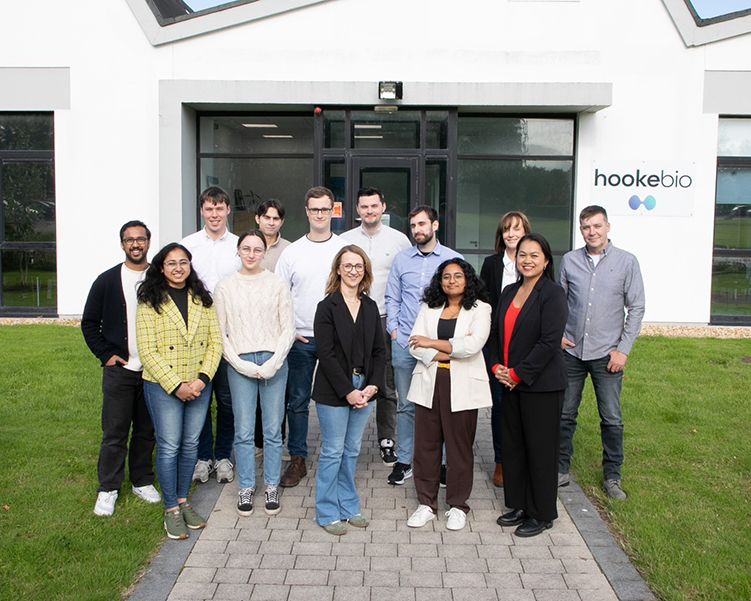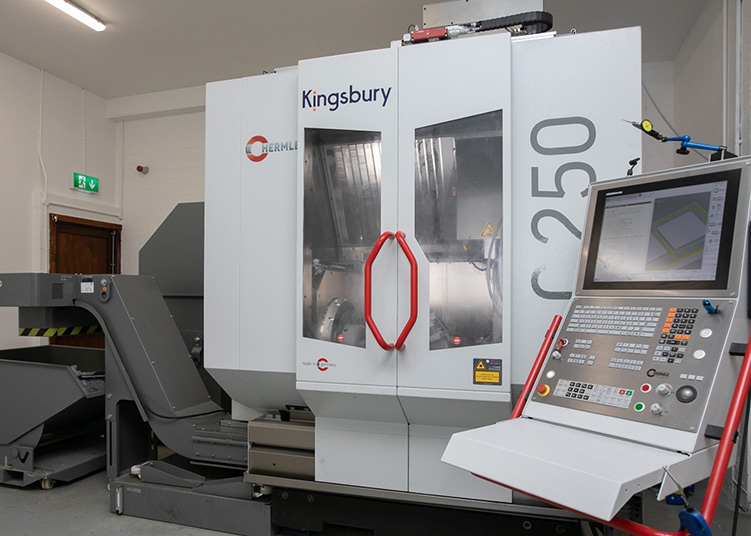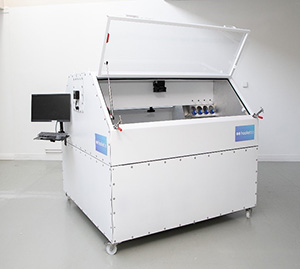Hooke Bio Ltd with Munster Technological University (MTU) and University of Galway (UG).

Hooke Bio Team at Shannon, Co Clare L-R, Back: Sumir Ramesh, Leon Riley, Andew Coffey, Patrick Costello, Conor Madden, Nuno Almeida, Trish O'Dwyer, Shane Devitt. L-R, Front: Bhairavi Keshava, Seonaid Deely, Finola Cliffe, Sandra Sunil, Veasna Sum-Coffey.
Project overview
The success of the pharmaceutical sector is built on the ability to manufacture and market new drugs. Pharmaceutical companies operate in a very high cost and high-risk environment.
Hooke Bio Ltd, in partnership with Munster Technological University and University of Galway sought to develop a fully integrated end-to-end high throughput drug screening platform, the sole key milestone and commercial goal of this project.
Watch on YouTube: Hooke Bio - Mera explainer - YouTube
Project inputs
The Mera project was awarded €1.9 million in funding under the first call of the Disruptive Technologies Innovation Fund. Currently, Hooke Bio retains 16 staff with biological, engineering and finance experience. During the course of the project, the University of Galway recruited four researchers. Post-project these researchers found similar roles in other universities and the pharmaceutical sector. Hooke Bio also availed of the funds prefinance option which granted an almost immediate injection of funds. Towards the end of the project, almost all the funding had been drawn down, and the project's objectives were achieved.

5-axis CNC, this tooling machines allows the majority of Mera's components to be manufactured in-house.
Hooke Bio has also received investment through their patented technology, attracting €2.2 million of seed funding and winner of numerous awards including the 2017 EI ‘Big Ideas One to Watch’.
To date, Hooke Bio have been awarded up to €12 million in investment from a combination of private, angel and public funds. A portion of this has come from the prestigious European Innovation Council (EIC) Accelerator funding of which Hooke Bio received €5.7 million (blended finance) in 2023. They recently launched their service option with hardware launch of their Mera Ultra system scheduled for late 2025.
The problem
The cost of bringing a new drug to market is estimated to be in excess of $2.5 (€2.2) billion. A large part of this cost is due to the high failure rate of early-stage candidate medicines. Furthermore, the cost of drugs coming off patent is estimated to be in the region of $8 (€7.03) billion per annum. Companies are looking to improve their revenue streams by combining existing drugs to improve therapies particularly for personalised drug screening or to tackle new diseases. Drug combinations have been shown to be more successful in a wide range of diseases including cancer, heart disease and HIV.
A large majority of preclinical drugs are tested on animals to determine their efficacy for human consumption. Due to the physiology differences between animals and humans, some marketed drugs can have mild to severe adverse side effects in humans but are considered safe following animal testing. Only 1 in 10 drugs make it through clinical trials. Animal testing remains the only reliable option to ensure new drugs are safe for human consumption.

Mera 3 - A unique fully automated micro physiological system capable of hosting 160 microtissues.
The solution
Hooke Bio has developed microfluidic technology that generates drug combinations four times faster and at as little as 10% of the cost of existing technologies. Its platform ‘Mera’ also utilises 3D cell culture technology which has been shown to give more physiologically relevant results than traditional 2D techniques positioning it suitably for personalised medicine. This platform will, potentially, save up to €120 million in pre-clinical drug development costs and reduce animal testing by 19 million animals per year.

Mera 2 has four times the capacity of Mera 3 with the ability to host 640 microtissues.
Outcomes
- Hooke Bio has filed three patents to protect for the microfluidic technology
- High potential for further innovation
- Facilitate the goals of 3Rs:
- reduce the need for animal testing for pharmaceutical safety screening
- provide more accurate pre-clinical testing models increasing the success of drug candidates going for clinical testing
- provide a platform that can be scaled to include other tissue types
- be usable for screening of environmental and other non-pharmaceutical compounds
- Hooke Bio was successful in the DTIF Call 7 with Relevium Medical and the University of Galway on the RestOAre project worth €4.6 million
- Opportunity to move into immunotherapy
Watch: Hooke Bio immunotherapy animation - Vimeo
Lessons learned
- The success of the project relied on good communication with the DTIF team and project partners
- Hiring experienced admin/finance personnel early on in the project or identifying services that can meet these needs would be a worthwhile activity
- The technical nature of the project has meant that continuous training for staff in many of the aspects of the work Hooke Bio carries out is key to having the whole team actively involved in the development of the Hooke Bio technology
